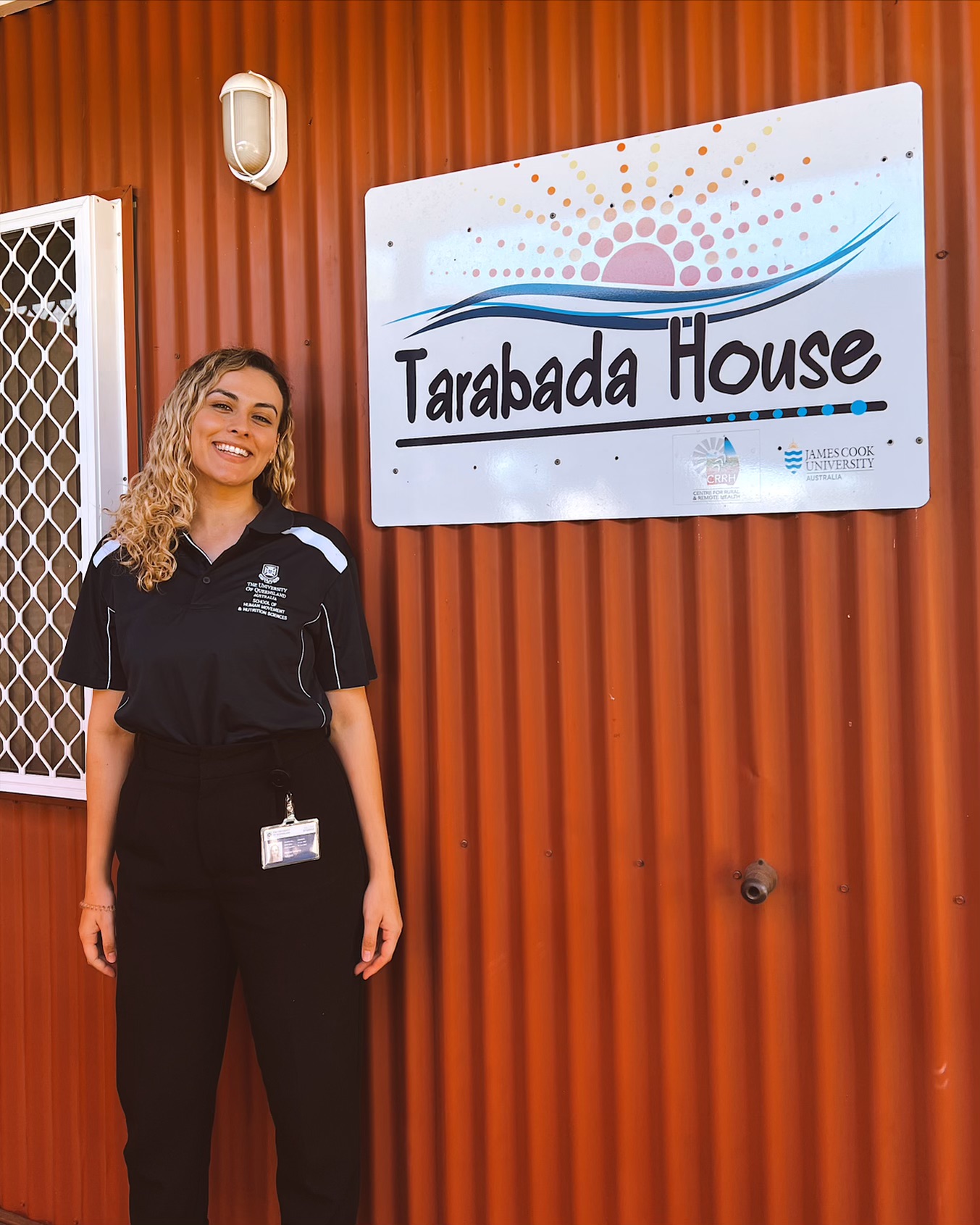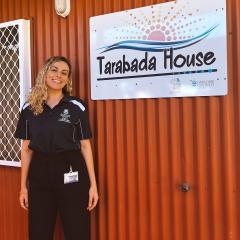Ten things I wish I knew before I started my rural placement
My name is Bronte, and I attended a rural placement as part of my Masters of Dietetics Studies at UQ. I re-located to Mount Isa for 5 weeks on my Community and Public Health Nutrition placement, based at the Murtupuni Centre for Rural and Remote Health. Those 5 weeks allowed me to experience some of the most amazing moments of my life and shaped me as a person and as a professional.
These are my top ten tips for making the most out of your rural placement.
 1) Everyone is in the same boat
1) Everyone is in the same boat
All the students around you, living with you, at the placement site with you, are all going through the same experience as you. They are living away from home, in an unfamiliar town, putting their theoretical skills into practice for the first time. It is okay to feel like you are in unfamiliar territory, because you are. The best thing to do is recognise that you are not going through this alone, understand that this is life as a student, validate your feelings, and realise that you will find strength in others, and will come out of this experience enriched and stronger than before.
2) You have people all around you to support you
Whether it be your friends and family cheering you on from home, your peers on placement with you, other students from different universities you work with on placement, your clinical educators, or your colleagues at the work site, everyone wants to see you grow, and everyone wants to help you develop your skills. Ask for help if you need it. Have a chat if you need it. Don’t be afraid to appear as if you don’t know everything, no one expects you to be perfect. This is your time to ask questions, so make sure you do.
3) Growth should be your main goal
Growth is the most important aspect of your placement. If you leave with more knowledge, confidence, and skills than you came in with, you have grown. Don’t underestimate the amount of growth you can achieve within a small amount of time. You may require growth in areas you did not think were important, so ensure you make the most of every opportunity on placement. Remember that failure is a normal part of growth, so if you fail at something, make sure you look at the situation in a positive light, and as an opportunity to refine your skills to improve for next time.
4) At the end of the day, your clients/patients/the community should be the ones to benefit
Remember that when you work in healthcare, the client’s priorities come first. It is essential to ask for help when you need it, avoid making situations solely about yourself and your learning, and make decisions with the client’s best interests at heart.
5) Be empathetic to your clients/patients/community, they experience many people coming and going
Healthcare workers come and go continuously in rural/remote communities, whether they be FIFO workers, or plan to work rural for a few years, then move back home. Students on placement in rural communities are often only there for a few weeks as well. Many people may have trust issues with the health care professionals and students in their region, as they are used to people not sticking around. This may cause people to feel like no one will ever be around long enough to truly be there for them and their family. It is important to recognise this when working with clients in a rural community and be empathetic towards their situation.
6) Say yes to everything, make the most of every opportunity
This was something I lived by every day of my 5 weeks. One of the best parts of going on a rural placement is the social/adventure aspect of it. I lived with a handful of allied health professional/med students, and we all wanted to make the most of our time there together. When someone in the group asked if we wanted to go on a hike up a mountain, go to the lake for a sunset swim, go for a weekend camping trip hours away, go to trivia, have a movie night at home, or go and watch the sunset from the top of the granite hills, I said yes.
These are the moments you will remember forever. These are the moments you make lifelong friends. So, say yes to everything and this will be an experience you will never forget. This is also relevant during your time working with clients on placement, as oftentimes there will be opportunities for additional practice and professional growth that you should say yes to, because before you know it, you will be out in the professional world.
7) Look for the positives in failure
Failure is a normal part of growth and change. You cannot control certain situations, but what you can control is your thought pattern regarding the situation afterwards. It is important to use opportunistic thinking such as “that could’ve gone better than how it went, what can I do better next time to ensure this doesn’t happen again”, rather than “I’m a complete failure, I’ve let myself down, I’ve let my clinical educator down, I will never learn”. Change your mindset and you will change the outcome.
8) Reflect, reflect, reflect
During my time on placement, I made personal SEAL reflections (situation, effect, action, learning) for each of my individual experiences with clients. If you are not sure how to write a SEAL reflection, search “the SEAL reflection method UQ” to find out more. Sometimes with so many things happening on placement, you can feel a bit foggy about everything going on. The process of writing these events down in my own words, describing what happened, what challenges I faced, how it impacted me personally or made me feel, the strategies I used to deal with the situation, what I learnt from it, and what I can do differently in the future, made me feel as if I had dumped everything out of my brain and put it on paper. It made me feel clear, and in a comfortable position to grow from the experiences, and then put them in the past. This may sound like a bit of extra effort; however, I cannot recommend this enough if you are feeling overwhelmed.
9) Action plans are your best friend
Action plans are super useful to work out areas you are doing well in, areas that need improvement, and understand and outline strategies you can used to achieve your top goals. Each goal should have about three specific strategies to achieve them. This allows you to practically work on things you want to improve on during your time on placement.
10) Have the time of your life, this is something you will always remember
Don’t take things too seriously and enjoy yourself. Trust me, the time will fly by and before you know it you will be done. Make the most of everything and enjoy every moment.

